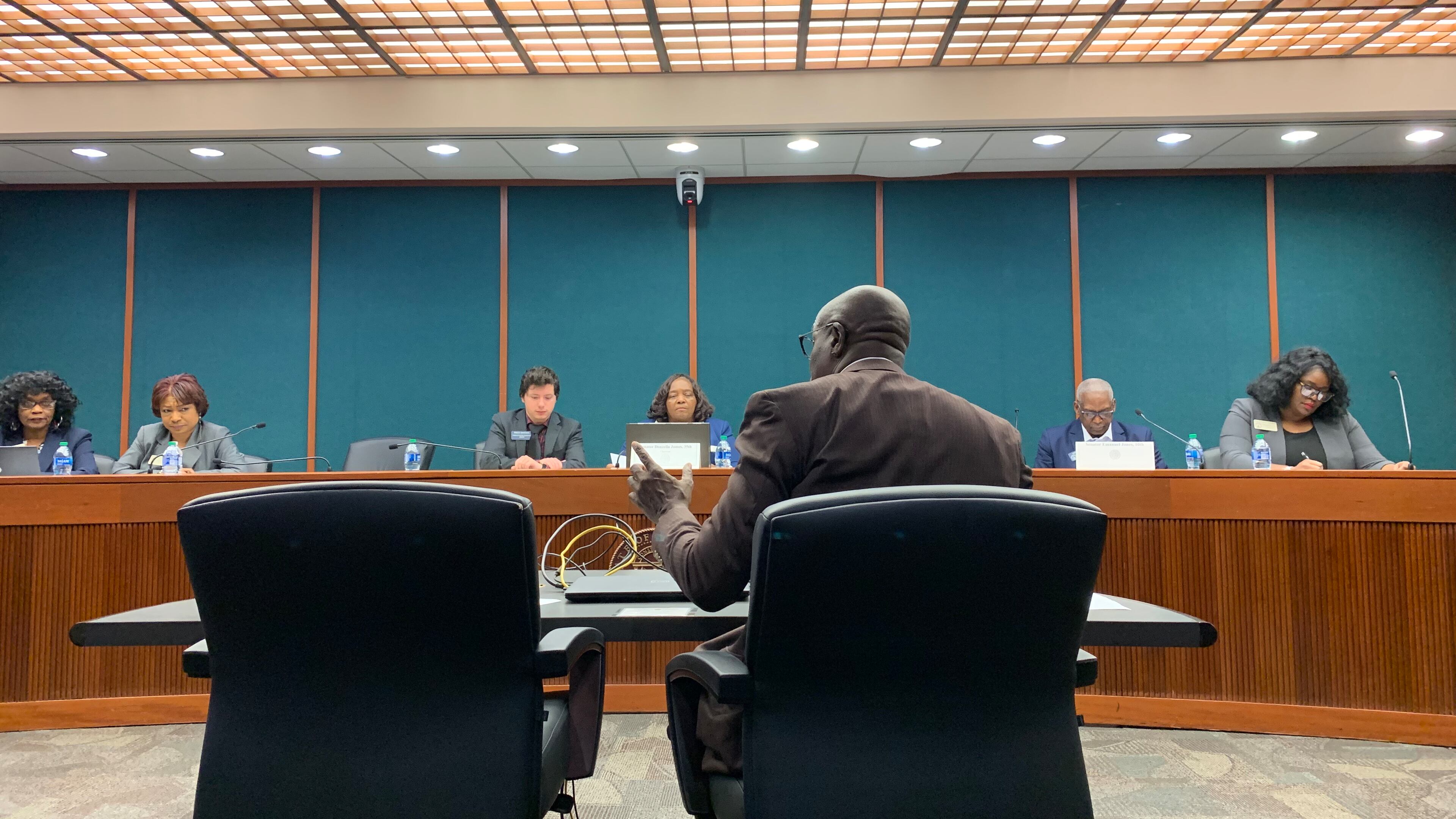‘Terrorized by HOAs’: Homeowners seek state help to curb association powers

One property owner spoke of a predatory homeowner association that buried him in petty fees and pushed him into bankruptcy. Another speaker accused their HOA board of voter suppression. Several local politicians pleaded for help from their state-level counterparts.
These are a few of the stories that emerged as a panel of state senators led by Sen. Donzella James, D-Atlanta, held a hearing earlier this month where homeowners flocked to the capitol to tell stories of problems they’ve had with HOAs.
It’s part of an effort to draw attention to the issue as Democratic lawmakers will try again to curb the power of HOAs in Georgia in the next legislative session that begins in January.
City of South Fulton council member Linda Becquer-Pritchett testified that several HOAs in her city have run into problems. They include Camelot Condominiums, where two members of the HOA board were indicted for allegedly stealing funds from a $1.5 million insurance payout after a building was destroyed by a fire.
“People are being really terrorized by HOAs,” Becquer-Pritchett said. “I’m seeing abuse that’s unconscionable.”
An Atlanta Journal-Constitution investigation published last year found that HOAs face few regulations in Georgia and wield broad powers over the estimated 2.2 million residents who reside within communities governed by associations. For those who run afoul of their association, the stakes can be high.
Homeowners who fall behind on dues or various fines can lose their home, even if they already own it outright, and critics say the state’s laws unfairly stack the deck against residents.
Georgia homeowners who find themselves in dispute with their associations have little recourse but to file a lawsuit in civil court, a prospect that can prove extremely costly to homeowners. Lawyers who represent homeowners are rare, and pursuing a lawsuit against an HOA can cost thousands of dollars — often exceeding the amount of the fines.
And taking one’s HOA to court can be risky. If the homeowner loses, Georgia law allows for an association to charge the homeowner for its attorneys fees.
Last year, James introduced Senate Bill 29, looking to address the lopsided fight many homeowners find themselves in when they take on their homeowners associations.
If passed, the bill would have required homeowners and their HOA to mediate disputes over unpaid assessments in an effort to avoid a protracted and costly court battle. James said she will again pursue legislative reform and her new bill will include a similar mechanism. She’s keen on establishing an ombudsman’s office that would act as a third party to mediate disputes.
According to the Community Association Institute, a homeowners association industry group, seven states currently have an ombudsman’s office or similar position.
“They could have somebody to go to that’s not partisan on either side,” James said.
Whether these bills make the distance is still an open question. James and her Democratic colleagues face steep opposition from industry groups and housing interests and, historically, there has been little appetite among Georgia Republicans for regulating HOAs. SB 29 did not receive a floor vote, neither did a similar bill on the House side, sponsored by Rep. Viola Davis, D-Stone Mountain.
James said she is talking with a few Republican lawmakers about HOA regulation, although she said she did not have their permission to disclose their names.
Still, James remains optimistic and added passing substantial legislation is rarely easy.
“I can’t think of one major bill that passed first try,” James said.



